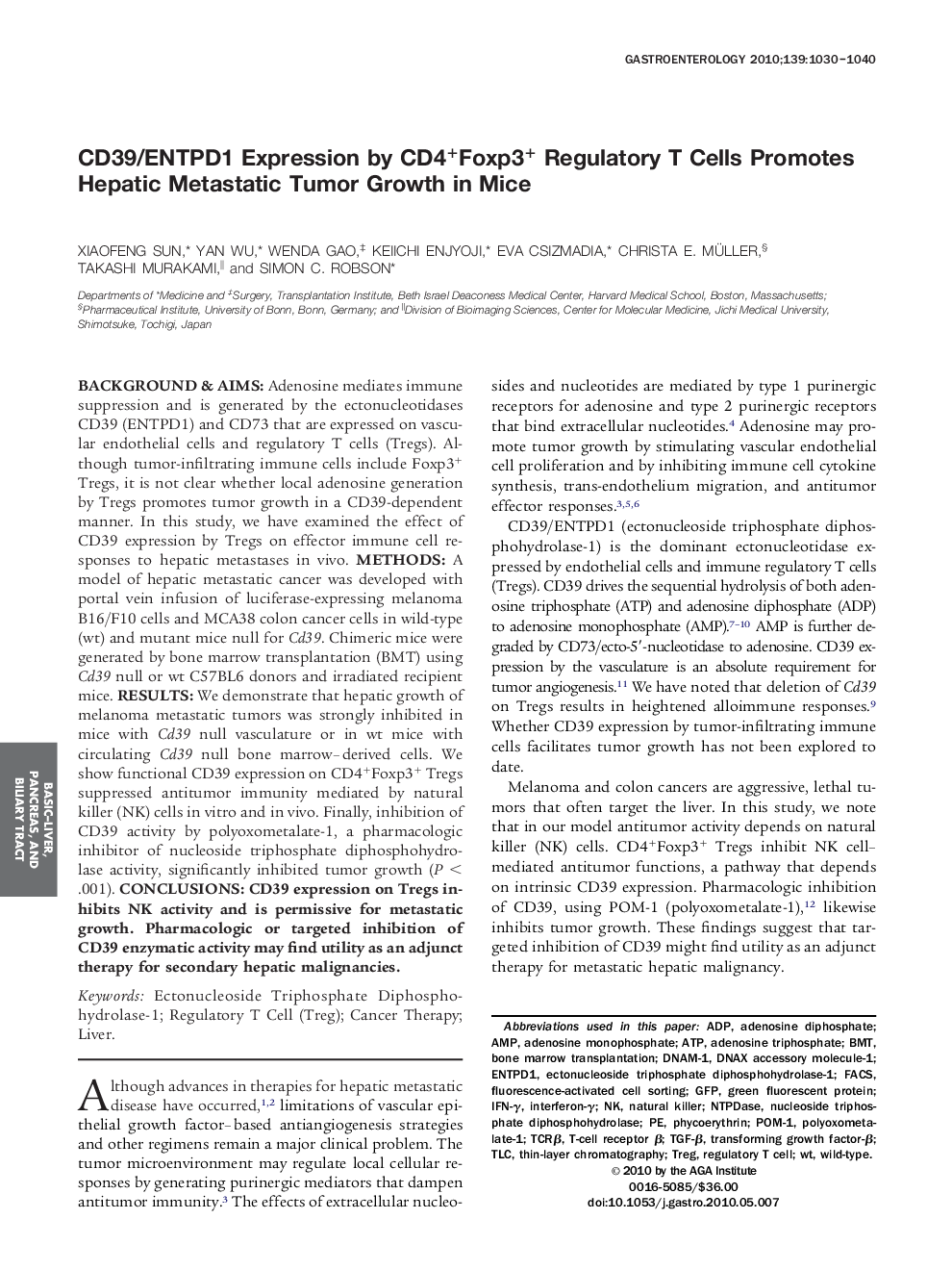| Article ID | Journal | Published Year | Pages | File Type |
|---|---|---|---|---|
| 3295779 | Gastroenterology | 2010 | 11 Pages |
Background & AimsAdenosine mediates immune suppression and is generated by the ectonucleotidases CD39 (ENTPD1) and CD73 that are expressed on vascular endothelial cells and regulatory T cells (Tregs). Although tumor-infiltrating immune cells include Foxp3+ Tregs, it is not clear whether local adenosine generation by Tregs promotes tumor growth in a CD39-dependent manner. In this study, we have examined the effect of CD39 expression by Tregs on effector immune cell responses to hepatic metastases in vivo.MethodsA model of hepatic metastatic cancer was developed with portal vein infusion of luciferase-expressing melanoma B16/F10 cells and MCA38 colon cancer cells in wild-type (wt) and mutant mice null for Cd39. Chimeric mice were generated by bone marrow transplantation (BMT) using Cd39 null or wt C57BL6 donors and irradiated recipient mice.ResultsWe demonstrate that hepatic growth of melanoma metastatic tumors was strongly inhibited in mice with Cd39 null vasculature or in wt mice with circulating Cd39 null bone marrow–derived cells. We show functional CD39 expression on CD4+Foxp3+ Tregs suppressed antitumor immunity mediated by natural killer (NK) cells in vitro and in vivo. Finally, inhibition of CD39 activity by polyoxometalate-1, a pharmacologic inhibitor of nucleoside triphosphate diphosphohydrolase activity, significantly inhibited tumor growth (P < .001).ConclusionsCD39 expression on Tregs inhibits NK activity and is permissive for metastatic growth. Pharmacologic or targeted inhibition of CD39 enzymatic activity may find utility as an adjunct therapy for secondary hepatic malignancies.
